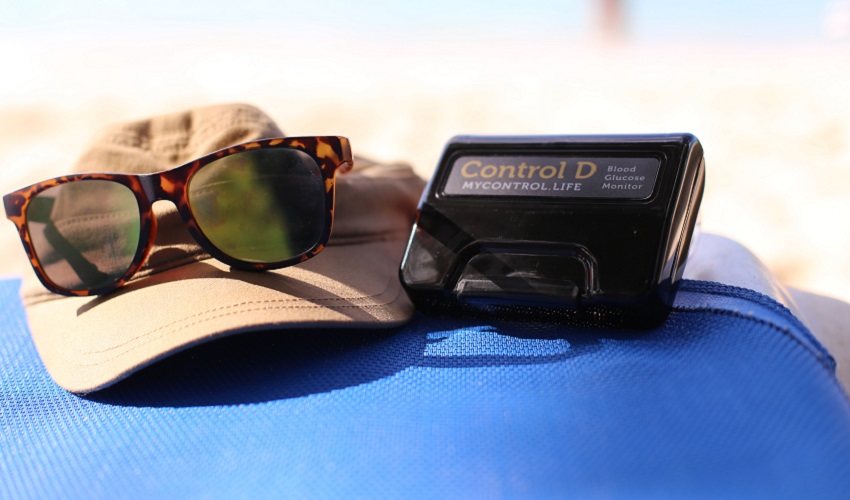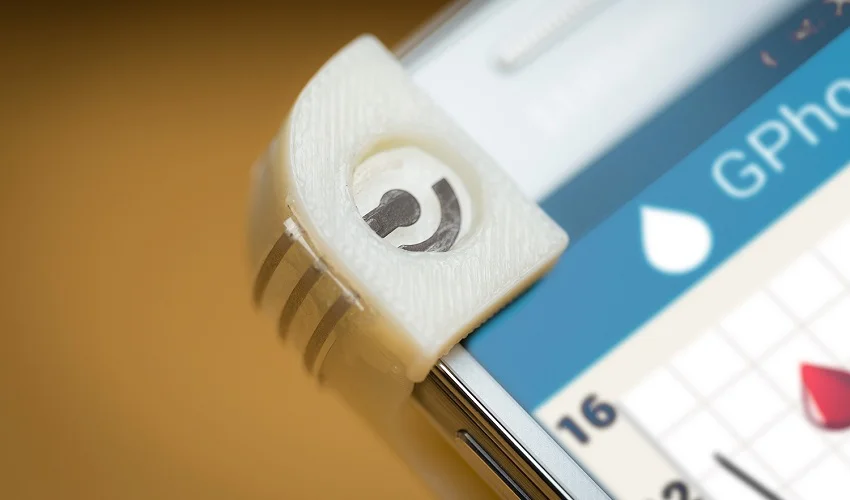Living with diabetes can present various challenges and impact the overall quality of life for individuals and their caregivers. However, advancements in technology and the availability of digital tools have opened up new possibilities for enhancing diabetes management. This article explores how technology and digital tools can empower diabetic patients and their caregivers, providing them with valuable resources and support for better self-care and improved outcomes.
The Role of Technology in Diabetes Management
Diabetes technology has evolved significantly, offering innovative solutions for effective diabetes management. Let’s explore some of the key technological advancements that have revolutionized diabetes care.
The Evolving Landscape of Diabetes Technology
Continuous Glucose Monitoring (CGM) Systems: CGM systems provide real-time and continuous measurements of glucose levels, eliminating the need for frequent fingerstick tests. These systems use a small sensor inserted under the skin to monitor glucose levels throughout the day, providing valuable insights into glucose trends and patterns.
Insulin Pump Therapy: Insulin pumps deliver insulin continuously, mimicking the function of a healthy pancreas. They offer precise and customizable insulin dosing, reducing the burden of multiple daily injections. Insulin pumps can be programmed to deliver basal insulin as well as bolus doses at mealtime.
Artificial Pancreas Systems: Also known as closed-loop systems, artificial pancreas systems combine CGM technology with insulin pumps to automatically adjust insulin delivery based on real-time glucose readings. These systems aim to provide more stable blood glucose control and reduce the risk of hypoglycemia.
Benefits of Technology in Diabetes Management
Improved Blood Glucose Control: Diabetes technology enables individuals to monitor their glucose levels more frequently and accurately. With CGM systems and insulin pumps, users can make informed decisions regarding insulin dosing and dietary adjustments to maintain optimal blood glucose control.
Enhanced Safety and Convenience: Technology reduces the risk of hypoglycemia by providing real-time alerts and warnings when glucose levels fall too low. Insulin pumps eliminate the need for multiple daily injections, offering a more convenient and discreet method of insulin delivery.
Real-Time Data and Insights: Diabetes technology generates a wealth of data, allowing users and healthcare professionals to gain valuable insights into glucose patterns, trends, and responses to various factors such as food, exercise, and medication. This data can guide treatment decisions and help identify areas for improvement.
Digital Tools for Diabetes Self-Management
In addition to hardware devices, digital tools such as mobile applications, telemedicine platforms, and online support communities play a crucial role in empowering individuals with diabetes to manage their condition effectively.
Diabetes Mobile Applications
Diabetes mobile applications, commonly known as diabetes apps, provide a range of features and functionalities to support self-management.
Blood Glucose Tracking and Analysis: These apps allow users to record and track their blood glucose levels over time. Some apps provide visual representations of data in the form of graphs or charts, facilitating a better understanding of glucose patterns and trends.
Meal Planning and Nutrition Guidance: Many diabetes apps offer features that assist in meal planning and carbohydrate counting. These tools help individuals make informed decisions about their food choices, ensuring a balanced and diabetes-friendly diet.
Medication and Treatment Reminders: Diabetes apps can send reminders for insulin doses, medication schedules, and regular glucose monitoring. These reminders help individuals stay consistent with their treatment plans.
Telemedicine and Remote Monitoring
Telemedicine and remote monitoring platforms have emerged as valuable resources for individuals with diabetes, especially in situations where in-person consultations may be challenging.
Remote Consultations and Support: Telemedicine platforms allow individuals to consult with healthcare professionals remotely, eliminating the need for physical visits. These virtual consultations provide opportunities for discussing treatment plans, reviewing glucose data, and addressing concerns.
Data Sharing and Analysis: With remote monitoring tools, individuals can share their glucose data with healthcare professionals in real-time. This facilitates remote analysis of glucose patterns and allows healthcare providers to make informed adjustments to treatment plans.
Behavioral Coaching and Education: Some telemedicine platforms offer behavioral coaching and educational resources to help individuals develop healthy habits, cope with diabetes-related challenges, and make lifestyle modifications to improve their overall well-being.
Online Support Communities and Education Platforms
Online support communities and education platforms provide a supportive environment for individuals with diabetes to connect, share experiences, and access valuable information.
Peer Support and Sharing Experiences: Online communities enable individuals to connect with others facing similar challenges. These platforms foster a sense of belonging, offer emotional support, and allow for the exchange of practical tips and strategies for managing diabetes effectively.
Access to Reliable Information and Resources: Diabetes-focused websites and education platforms provide evidence-based information on diabetes management, treatment options, dietary guidelines, and exercise recommendations. Individuals can access comprehensive resources to educate themselves and make informed decisions.
Education on Diabetes Management: Online platforms offer educational courses and webinars conducted by healthcare professionals, diabetes educators, and experts. These resources empower individuals to enhance their knowledge and skills in diabetes self-management.
Integrating Technology and Digital Tools into Diabetes Care
For optimal results, the integration of technology and digital tools should involve collaboration between individuals with diabetes, caregivers, and healthcare professionals.
Healthcare Professional Collaboration
Remote Data Access and Analysis: By sharing glucose data collected from diabetes devices, individuals and healthcare professionals can collaborate remotely to review trends, identify patterns, and make data-driven decisions to optimize diabetes management.
Virtual Care and Consultations: Telemedicine platforms enable healthcare professionals to conduct virtual consultations and follow-up visits. This enhances accessibility to specialized care, particularly for individuals residing in remote areas.
Treatment Adjustment and Personalization: Healthcare professionals can remotely adjust treatment plans based on the analysis of glucose data, ensuring personalized care and timely modifications to insulin doses, medication regimens, and lifestyle recommendations.
Empowering Self-Care and Decision Making
Real-Time Blood Glucose Monitoring: CGM systems provide real-time glucose readings and alerts, allowing individuals to take immediate action in response to high or low blood glucose levels. This empowers individuals to make informed decisions about insulin dosing, physical activity, and dietary choices.
Predictive Analytics and Alerts: Advanced CGM systems incorporate predictive algorithms to anticipate glucose fluctuations. By providing alerts and warnings before hypoglycemic or hyperglycemic events occur, individuals can proactively manage their condition and avoid potential complications.
Personalized Treatment Plans: With access to real-time data and insights, healthcare professionals can develop personalized treatment plans tailored to individual needs, preferences, and goals. Personalization optimizes glycemic control and ensures a patient-centric approach to diabetes management.
Impact of Technology and Digital Tools on Diabetes Management
The integration of technology and digital tools into diabetes management has demonstrated significant positive impacts on individuals’ health outcomes and quality of life.
Improved Glycemic Control and Outcomes
Reduction in HbA1c Levels: Studies have shown that the use of CGM systems and insulin pump therapy is associated with improved glycemic control, leading to reductions in HbA1c levels. These advancements help individuals achieve target glucose ranges more consistently.
Minimization of Hypoglycemic Episodes: CGM systems with alerts and predictive capabilities can help individuals avoid hypoglycemia by providing timely warnings. This reduces the occurrence of severe hypoglycemic episodes and improves overall safety.
Prevention of Diabetic Complications: By maintaining optimal blood glucose control, individuals can reduce the risk of long-term complications associated with diabetes, such as retinopathy, neuropathy, and cardiovascular diseases.
Enhanced Quality of Life
Increased Convenience and Flexibility: Technology simplifies diabetes management by reducing the burden of manual tasks, such as frequent fingerstick testing and multiple daily injections. Insulin pumps and CGM systems provide greater flexibility in daily activities, including exercise, work, and social engagements.
Reduced Diabetes-Related Stress: With continuous glucose monitoring and real-time data, individuals experience reduced anxiety and stress related to glucose fluctuations. They gain confidence in their ability to manage their condition effectively, leading to improved emotional well-being.
Better Emotional Well-being: Online support communities and educational platforms offer a sense of belonging and social support. Interacting with others facing similar challenges reduces feelings of isolation and promotes mental well-being.
Addressing Challenges and Considerations
As technology and digital tools continue to advance, it is important to address certain challenges and considerations to ensure their widespread accessibility and effectiveness.
Accessibility and Affordability
Ensuring Equitable Access: Efforts should be made to ensure that individuals from all socioeconomic backgrounds, including low-income populations and underserved communities, have access to diabetes technology and digital tools. Initiatives such as subsidized programs, insurance coverage, and public health interventions can promote equitable access.
Cost-Effective Solutions: The affordability of diabetes technology remains a concern. Continued research and development should focus on creating cost-effective solutions without compromising quality and performance. Collaboration between healthcare organizations, technology companies, and policymakers can drive innovation and cost reduction.
Privacy and Data Security
Protection of Personal Health Information: As more data is generated through diabetes technology and digital tools, it is crucial to protect the privacy and security of personal health information. Stricter regulations, robust encryption methods, and transparent data handling practices should be implemented to ensure confidentiality and mitigate the risk of data breaches.
Compliance with Privacy Regulations: Healthcare organizations, technology developers, and app providers must adhere to relevant privacy regulations, such as the General Data Protection Regulation (GDPR) and Health Insurance Portability and Accountability Act (HIPAA), to safeguard individuals’ data and maintain trust.
The integration of technology and digital tools into diabetes management has revolutionized the way individuals with diabetes and their caregivers approach self-care. The benefits are evident, with improved glycemic control, enhanced quality of life, and increased access to support and resources. However, it is crucial to address challenges such as accessibility, affordability, and privacy to ensure these tools are available to all individuals living with diabetes. By embracing technology and leveraging digital tools, diabetic patients and their caregivers can empower themselves to take control of their health, leading to better outcomes and an improved overall quality of life.




